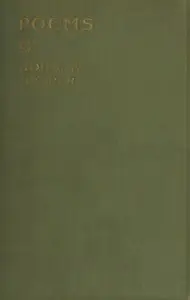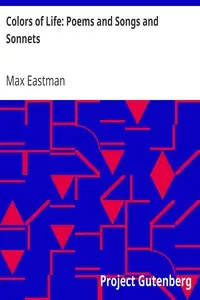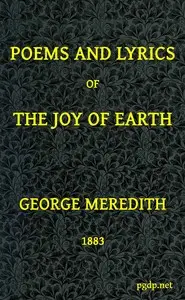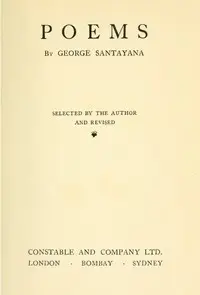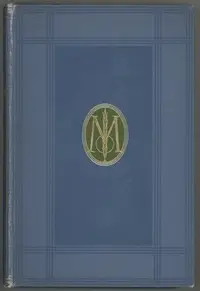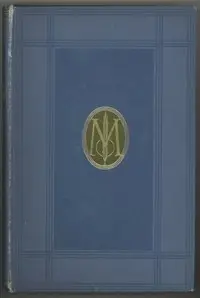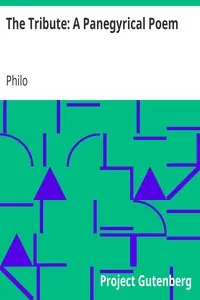A Reading of Life, with Other Poems is a book written by George Meredith. It is a collection of poems that explore themes of life, nature, and humanity. The book is divided into several sections, each containing poems that delve into different aspects of human experience. The poems are written in a lyrical and introspective style, with a focus on the emotional and philosophical aspects of life. The book touches on topics such as the human condition, the nature of reality, and the search for meaning and purpose. Through his poetry, Meredith offers a unique and thought-provoking perspective on the world, encouraging readers to reflect on their own place within it. The poems in the book are characterized by their use of rich imagery and symbolism, which adds depth and complexity to the themes and ideas being explored. Meredith's use of language is masterful, with a keen attention to rhythm and meter that creates a musical quality to the poems. The book as a whole is a testament to Meredith's skill as a poet and his ability to express profound insights into the human experience through his writing.
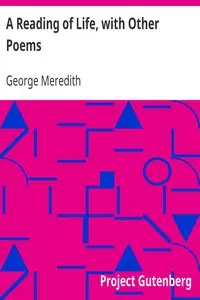
A Reading of Life, with Other Poems
By George Meredith
In a world where life and death walk a delicate balance, humanity searches for meaning and purpose, guided by the conflicting forces of nature and the human heart.
Summary
About the AuthorGeorge Meredith was an English novelist and poet of the Victorian era. At first, his focus was poetry, influenced by John Keats among others, but Meredith gradually established a reputation as a novelist. The Ordeal of Richard Feverel (1859) briefly scandalised Victorian literary circles. Of his later novels, the most enduring is The Egoist (1879), though in his lifetime his greatest success was Diana of the Crossways (1885). His novels were innovative in their attention to characters' psychology, and also portrayed social change. His style, in both poetry and prose, was noted for its syntactic complexity; Oscar Wilde likened it to "chaos illumined by brilliant flashes of lightning". Meredith was an encourager of other novelists, as well as an influence on them; among those to benefit were Robert Louis Stevenson and George Gissing. Meredith was nominated for the Nobel Prize in Literature seven times.
George Meredith was an English novelist and poet of the Victorian era. At first, his focus was poetry, influenced by John Keats among others, but Meredith gradually established a reputation as a novelist. The Ordeal of Richard Feverel (1859) briefly scandalised Victorian literary circles. Of his later novels, the most enduring is The Egoist (1879), though in his lifetime his greatest success was Diana of the Crossways (1885). His novels were innovative in their attention to characters' psychology, and also portrayed social change. His style, in both poetry and prose, was noted for its syntactic complexity; Oscar Wilde likened it to "chaos illumined by brilliant flashes of lightning". Meredith was an encourager of other novelists, as well as an influence on them; among those to benefit were Robert Louis Stevenson and George Gissing. Meredith was nominated for the Nobel Prize in Literature seven times.

